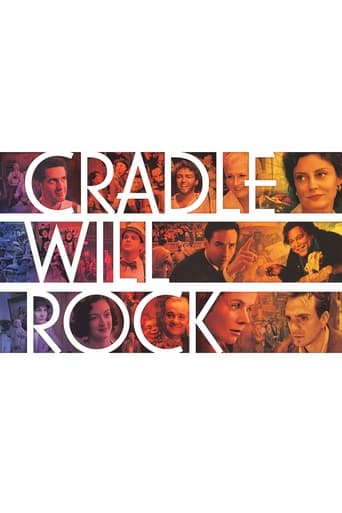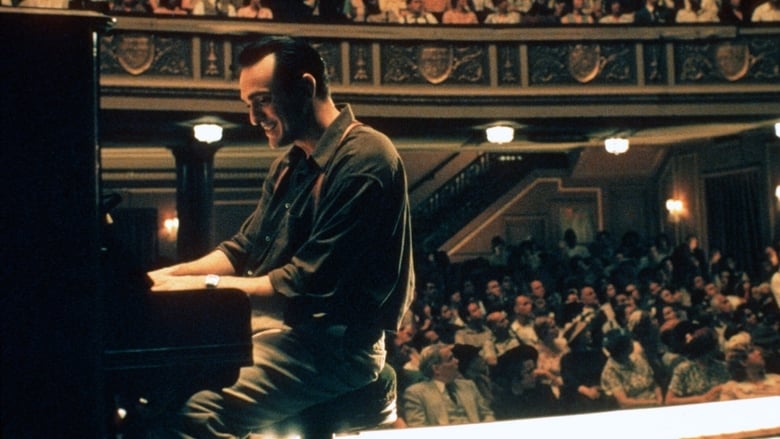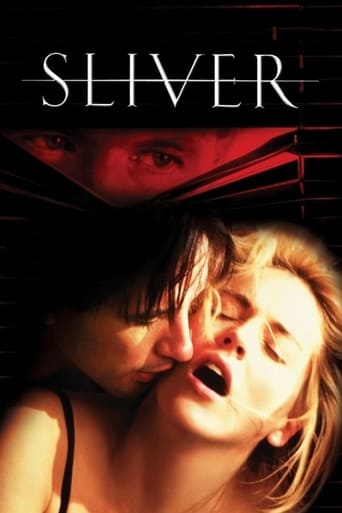Cradle Will Rock (1999)
A true story of politics and art in the 1930s USA, centered around a leftist musical drama and attempts to stop its production.
Watch Trailer
Cast


Similar titles
Reviews
Expected more
Dreadfully Boring
The plot isn't so bad, but the pace of storytelling is too slow which makes people bored. Certain moments are so obvious and unnecessary for the main plot. I would've fast-forwarded those moments if it was an online streaming. The ending looks like implying a sequel, not sure if this movie will get one
A terrific literary drama and character piece that shows how the process of creating art can be seen differently by those doing it and those looking at it from the outside.
Uber-Liberal Tim Robbins (wrote and directed) This Energetic Ensemble of America in the Deep Depression Era and the Clash of Art and Industrial Right Wing Politics. Robbins Never Shy of His Heart Bleeding On His Sleeve, is Commanding with His Vision of Real Life Strife in Any Era Concerning Itself Completely in the Way it Uses Art to Compel the Vision of Real People and the Effect Top Down Intimidation and Downright Oppression of Thought can be So Devastating.The All-Star Cast Takes Turns with the Limited but Engaging Portrayals and Robbins Over the Top and Interwoven Story Reminds of Robert Altman. It's All So Much Pageantry and Playful Exuberance that the Viewer Can't Help but be Entertained and Enlightened.A Colorful and Broad Artistic Landscape with Real Life Characters Who Are Interestingly Villainous and Various Artistic Types Caught in the Hurricane of Hubris from the Culturally Challenged. A Daddy Warbucks Display of Unhinged Capitalism with No Regard for Individual Suffering Cannot be Overstated.The Movie has Been Criticized for Being Flamboyant and Disjointed, but the Story Takes on Quite a Bit in Historical and Social Concerns that it Might be Given a Pass as Exclamatory but Exciting Nonetheless.Overall, it is an Overlooked and Dismissed Propaganda Piece that is So Artfully Rendered it will Stand the Test of Time with it's Unapologetic Display of a World Gone Mad, Corruptible On All Fronts. It Takes a Stand and Defies Dissent Despite its Easy Target as Left-Wing Nonsense that in the Last Analysis that Criticism Doesn't Hold Up Because the Film's Thesis is Undeniably True.
From the beginning I wasn't too sure I was going to watch the entire movie because it seemed a bit scattered, and sort of an almost musical, but not committed enough to be a full fledged musical. But the longer I watched the more I became fascinated with the many layers going on in the production. This is definitely one of those movies that you could watch a few times and come away with different information and perspectives than previously.The casting was totally a power house line up. I'm guessing the script along with Tim Robins fame probably got these powerful actors and actresses to work on this for lower than their usual price because this just wasn't a script that would make mega millions at the box office so there must have been some sacrificing to get that many great performers on here. I wont go over all the big stars because others on here already have done a good job of that. But the actor who played the young Orson Wells (From around the Citizen Kane era) was practically a ringer for Wells. So much that it was almost like they imported him back in time from the Citizen Kane movie.The only disappointment I actually had here was that in the beginning of the film this is listed as a "Mostly True Story," but then at the end there wasn't some post script that sort of tied up the loose ends to let us know what finally happened to the individual primary characters and the play production after the opening night. It would have been nice to have some mention....Otherwise this was a very interesting and thought provoking movie.
In 1992, Tim Robbins played the lead role in a Robert Altman film called 'The Player', a film about an egotistical film producer in contemporary Hollywood; a man who was forced to face a reality check as a somewhat disgruntled situation closed in on him. With 1999's Cradle Will Rock, Robbins returns to the territory that sees people in the entertainment business struggling to lead the lives they would desperately like to. Only this time, he is directing a film about a group of people that do not so much need a reality check and to go through a blender of facing the repercussions one brings upon one's self, as much as he directs a bunch of characters trying to survive as the Great Depression consumes everything around it and desperation threatens creeps in.Like The Player, Cradle Will Rock opens up with a wonderful long take in a theatre, detailing the necessary surroundings; the sorts of people the film will be spending time with and gets across a general feel for the era in which it's set by having a news reel play in the background. It's a slow and deliberate opening, hovering and focusing on one individual as they lie there, back stage; capturing what will follow: a hovering and a focusing on people within an industry the stereotypical image of which might be glitz, glamour and riches. These people are just trying to get by.Cradle Will Rock is set amongst those in the theatrical business in 1930s America, as opposed to the film industry in the 1990s. While systematically looking at art-forms and the want for some to censor art within this world, director Robbins paints a wonderful canvas of the class system within this time and how different struggles affect each and every one of the different layers of life. The film is often quite funny, even surrealistic in its gags, but it never trivialises the bigger picture of the situation and nor does it exploit those struggling for means of entertainment even though they are working within the boundaries of an entertainment medium.Amongst the all star cast is Marc Blitzstein (Azaria), a deep thinking and spiritual piano player desperately looking for inspiration and a tune to nail to his upcoming musical entitled Cradle Will Rock, the very piece everyone will come together and find solace with. We also get a steady turn from Bill Murray, as he plays Tommy Crickshaw, an ageing puppeteer who is tied to two young protégés. Then there is Angus Macfadyen's wonderfully eccentric portrayal of Orson Welles, as a young and energetic director so desperately trying to succeed in completing a play with his producer John Houseman (Elwes). On another equilibrium, John Cusak's Nelson Rockefeller gets into all sorts of bother with a Mexican artist that paints a wonderful mosaic on the wall of Rockefeller's theatre only to refuse removing Lenin's face he has included. Robbins effortlessly taps into the growing fears of Communism at the time but additionally finds time to present an argument on censorship without taking sides.Cradle Will Rock is essentially a feel-good piece. Its title suggests potential disaster, an ominous event about to occur, particularly if we think back to what follows 'cradle will rock' in the popular rhyme. To give away whether things come crashing down or not is a spoiler of sorts if you're not familiar with how the real 1937 events eventually transpired. Each character is given enough time for us to be able to resonate with them. The film is concerned with different aspects of certain artists and their fields. Blitzstein's face and hands as he plays the piano are given more attention than anything else as he goes through all the emotions in trying to write his musical. This is accompanied by the very sporadic and energetic Welles, whose body language and hand all-over-the-place-hand-gestures gets across most of the urgency in regards to his respective situation. Further still, the Mexican artist that paints Rockefeller's wall, as well as Tommy Crickshaw, use their tired and experienced hands to carve a living out of what are, essentially, art forms in themselves; those being painting and ventriloquy.The Mexican artist's painting forces the film to raise some interesting issues. Rockefeller wishes to censor the inclusion of Lenin so as not to confuse onlookers; so as not to force contextual analysis of why the head might be there. It is a tampering of art, something that echoes what drives the final third which is a cancellation of the show and the stopping of an art-form from playing out in its true form. This oppositional reading idea is hit upon a second time in the film when a newspaper reads what seems to be a harmless children's play about beavers, in an entirely different fashion. Thankfully, common sense prevails and something transpires; an event that the old phrase 'the show must go on' could well have derived from.Cradle Will Rock is a brilliantly acted and wonderfully directed film, with a distinct energy and applied assurance on Tim Robbins' behalf – it is a shame he has only very few directing credits following this project. The film is an homage, of sorts, to theatre; set at a time when it was becoming second-fiddle to cinema barely years after the introduction of sound on screen. The rousing and affirming finale rounds off what is, essentially, a rousing and affirming film about a play depicting harsh realities of life, but never underplaying them.
"Cradle Will Rock" is not a very exciting title for a film, and my eye would most certainly have slid past its listing in the TV guide if it were not for the one-sentence plot synopsis below: "Orson Welles attempts to stage a controversial play in Depression-era America." My attention was immediately captured, and even more so during the very impressive one-take opening shot, which also boasts a lengthy line-up of casting credits that features everybody from Hank Azaria to Emily Watson, with no less than two Cusacks to seal the deal if there's one thing to be said about actors-turned-directors, it's that they can certainly bring in the big names. 'Cradle Will Rock (1999)' was Tim Robbins' third directorial effort, and he courageously tackles a wide assortment of political and social issues from 1930s America, as well as providing a commentary on the importance of art and culture as a means of expressing one's personal beliefs. It is only fitting that a film about the role of art be directed by a man who is obviously very passionate about his craft, and Robbins has produced a mature and intelligent comedy/drama.The film, based on the true story of Marc Blitzstein's 1937 musical "The Cradle Will Rock," was originally planned as Orson Welles' final project, and pre-production commenced in 1983. However, not unusually for the great director, financial support was withdrawn shortly afterwards, and Welles passed away in 1985. Marc Blitzstein (Hank Azaria), a delusional playwright, pens a leftist labour musical based on his experiences with poverty-stricken households and the emerging union powers. Hallie Flanagan (Cherry Jones) of the Federal Theatre Project recognises the dramatic brilliance of the play and agrees to finance it, much to the consternation of the House Committee on Un-American Activities, which is attempting to wheedle out anything that might possibly be construed as Communism. The dramatic prodigy Orson Welles (Angus Macfadyen) is hired to direct the play, and he impulsively decides to cast a homeless stagehand (Emily Watson) in the lead role, even though she can't sing. Meanwhile, Nelson Rockefeller (John Cusack) commissions artist Diego Rivera (Ruben Blades) to paint a mural in his lobby, but is dismayed at the final result.Though Orson Welles merely plays a supporting role in the proceedings, he is played with delicious verve by relative unknown Angus Macfadyen. His portrayal is completely overplayed, presenting the director and performer as a flamboyant caricature, probably the only approach if one is to capture a personality as outrageous as that of Orson Welles. Though the film itself lacks some narrative focus in that it attempts to cover too many themes and characters, all the loose-ends satisfactorily come together for the climax, the incredibly-energetic opening performance of "The Cradle Will Rock." I was once again reminded of the considerable talents of John Turturro, who brilliantly and convincingly evolves from the shy, humble Italian family man off-stage to his character of the strong, assertive union leader. Robbins also intercuts the play performance with the heartless desecration of Diego Rivera's politically-charged artwork mural, ironically contrasting the presentation of great art with its inevitable destruction by those who could never appreciate its importance to human culture.

















